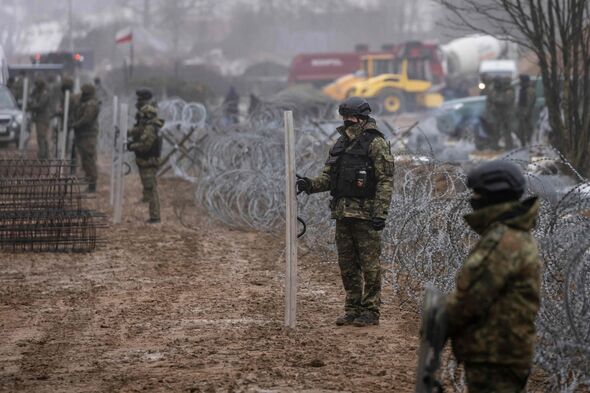European Union member-states are increasingly tightening their border regimes as they pressure Brussels to follow suit.
During a fiery European Parliament session this week, hundreds of MEPs from a right-wing coalition voted in favour of funding “external physical barriers at the Union’s border” under the EU’s 2025 budget.
The vote was ultimately defeated, but the proposal marked a shift as the centre-right European People’s Party (EPP) joined forces with far-right groups in the parliament.
The amendment gained support from a whopping 329 Members of the European Parliament (MEPs), including all the far-right groups: Patriots for Europe, the European Conservatives and Reformists, and ESN.
EPP Group vice chair Tomas Tobé told Euronews that the EPP backed the proposal because “it is our long-standing policy to advocate for EU funding for external border infrastructure”.
He added: “It is also in line with the position of the European Council: physical barriers are essential for securing the EU’s external borders and managing migration effectively”.
Swedish MEP Charlie Weimers of the European Conservatives and Reformists (ECR) group added: “Securing the border, once rejected as heresy, has become mainstream.
“Will the European Parliament defend Europe or open the floodgates? There is a right-wing majority in this House to stop illegal migration, stop asylum abuse and stop the weaponisation of migrants. It’s time we use it.”
However, the move towards cracking down on migration risks tearing apart the European bloc.
Left-wing and liberal groups condemned the proposal and accused the EPP of betraying Brussels chief Ursula von der Leyen.
Leading MEP Fabienne Keller, from France, said: “Something very serious happened. This means the EPP abandons the solid majority built to back Ursula von der Leyen as Commission president.
It comes as EU member states are increasingly turning rightward on migration. The European Parliament shifted from a left-liberal majority earlier this year to a right-wing majority after the June elections.
Demands have joined the growing calls for an EU border wall for ‘return hubs’ – offshore centres for processing asylum claims in non-EU countries.
Earlier in October, the European Commission president, Ursula von der Leyen, said EU leaders had discussed the idea of “developing return hubs outside the European Union” for people with no right to stay”.
The Danish prime minister, Mette Frederiksen, said that calls for a tougher migration approach had been “a bit like shouting in an empty sports hall” until now.
She added: “But now there are many countries that work together on this. A great number of Europeans are tired of us helping people from outside who commit crimes. Some are radicalised. It can’t go on like this. Therefore, there is a limit as to how many people we can help.”
The Dutch prime minister, Dick Schoof, said: “We see that there is a different mood in Europe.”
